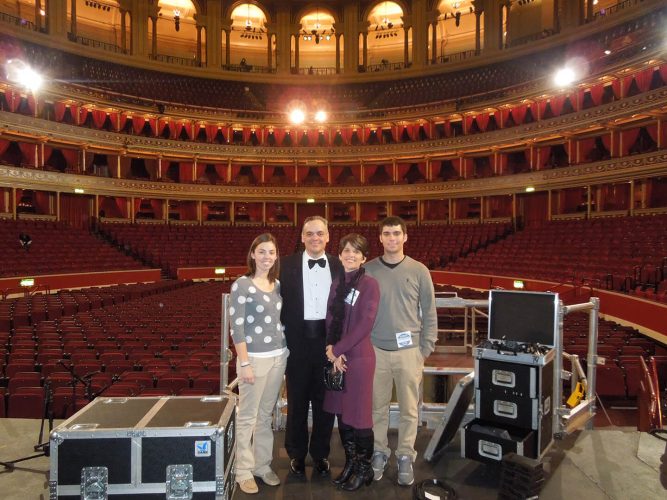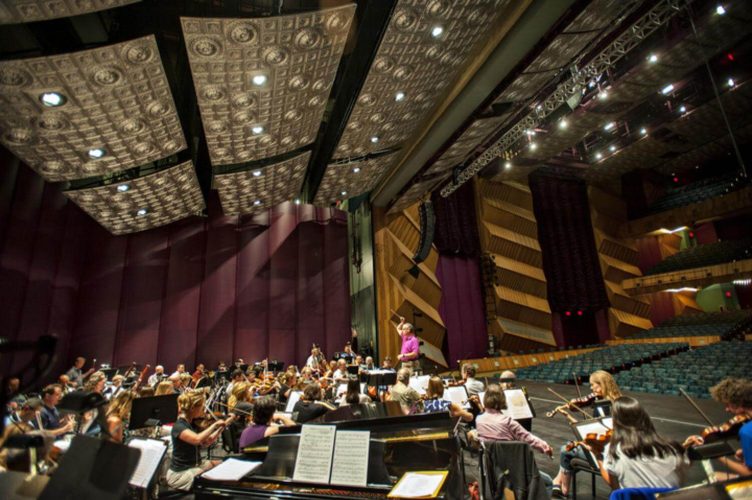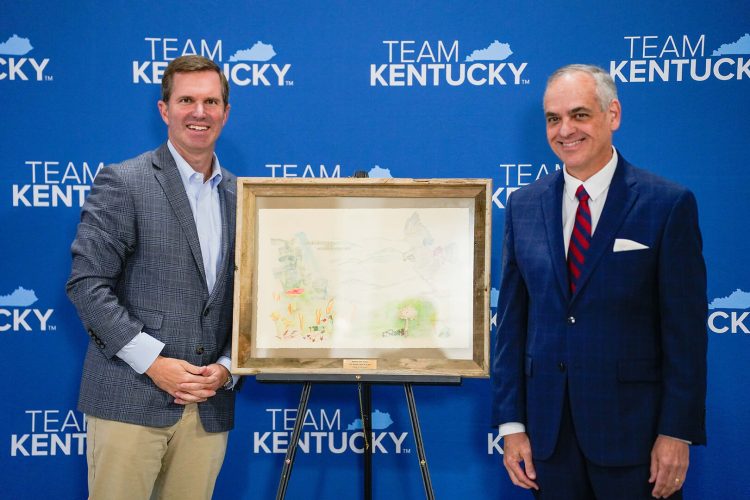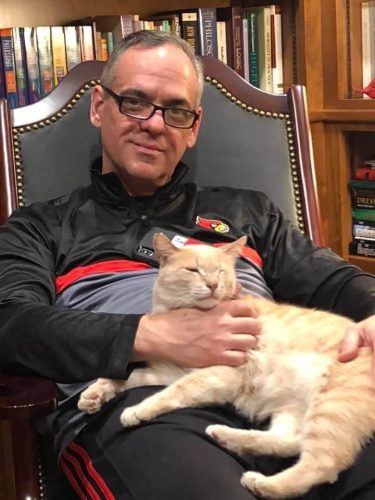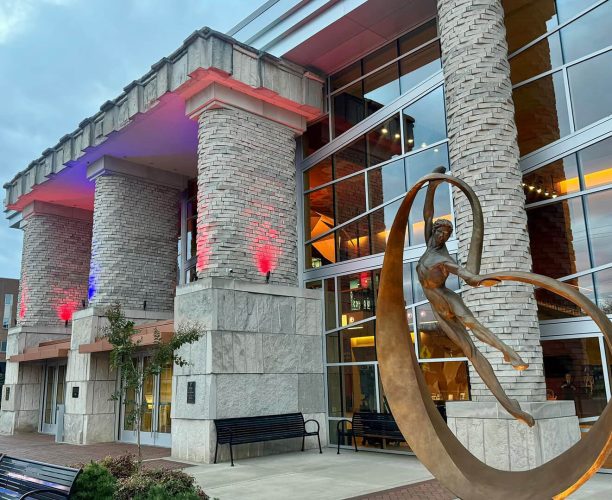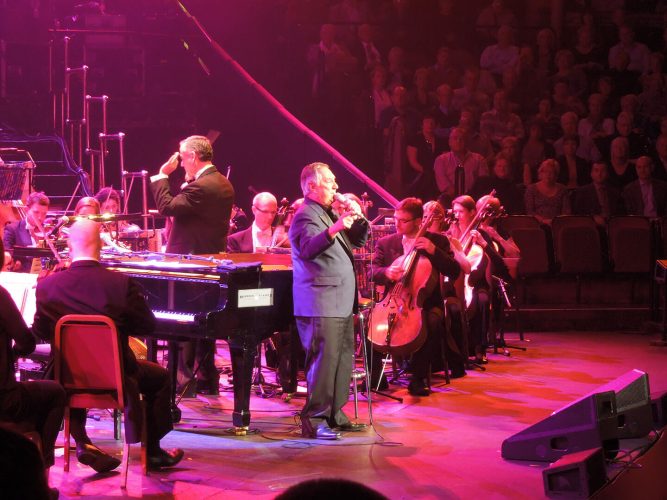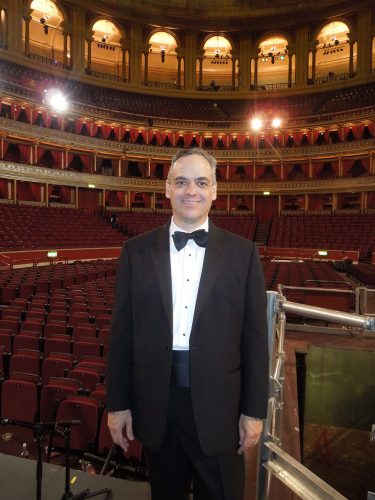The Power of Music Education
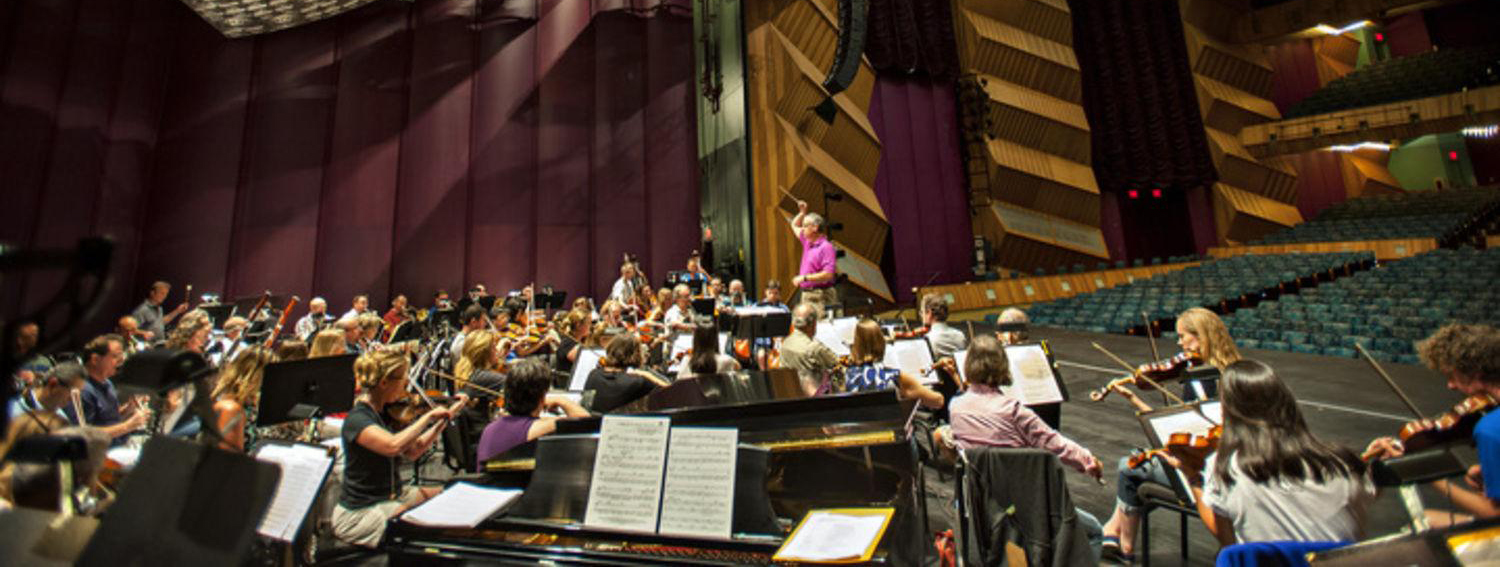
From Vinton to the World Stage
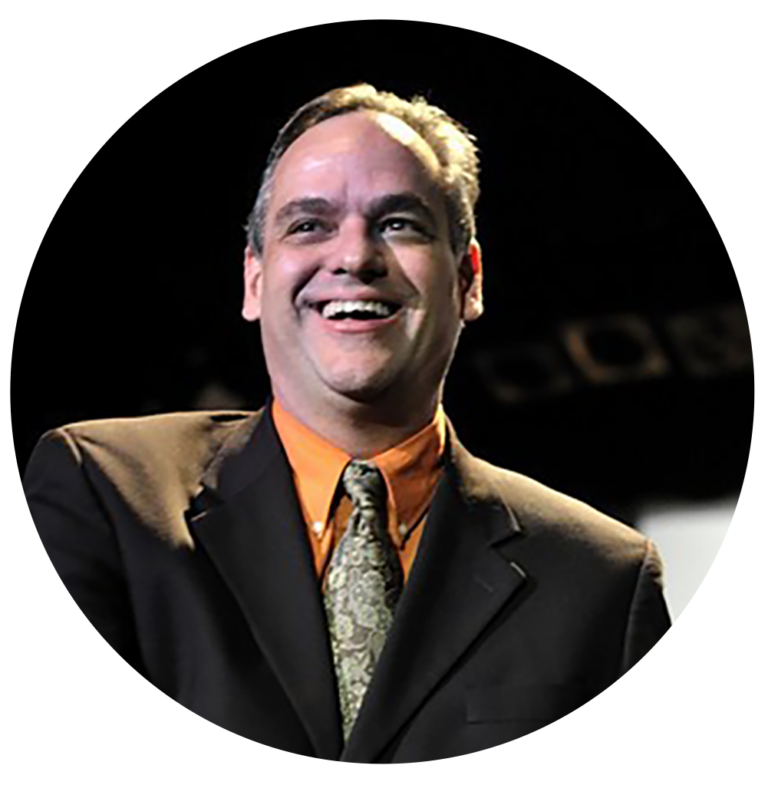
Jeff Reed, an accomplished conductor and music educator who graduated from Vinton in 1980, wants you to imagine a world without music. No soundtracks in movies, no songs on your drive home, no anthems tied to your favorite memories. “Music,” Reed says, “is woven into the fabric of our lives—and it deserves to be nurtured and celebrated in our schools.”
Reed traces his lifelong passion for music to his first year in Vinton at what was then the Tilford Jr. High School. “We moved to Vinton from Indiana because the farm crisis had hit Indiana hard, and even though Iowa was suffering too, my dad had an opportunity as a cattle buyer.”
It was there, under the guidance of his dedicated teacher, Mr. John Kahrl, that Reed’s journey in music truly began. This journey would lead him to perform with leading music stars in the U.S. and all over the world.
The Teacher Who Changed Everything
Reed found a community and a home in the band room under Mr. Kahrl, a teacher with an extraordinary ability to ignite passion for music in his students. “He wasn’t just a band director—he was a mentor who recognized my interest in conducting and gave me every opportunity to grow,” Reed recalls.
Mr. Kahrl went beyond the standard curriculum. When Reed showed an interest in arranging music, Kahrl encouraged him by playing his compositions. Recognizing Reed’s potential, he found a trumpet teacher in Cedar Rapids. “Mr. Kahrl played the clarinet, and there was only so much he could teach me, so he found a teacher, and my mother drove me 60 miles every week for lessons. Her commitment and Mr. Kahrl’s encouragement set me on my path,” Reed says.
Lessons That Last a Lifetime
Even as Reed went on to found Orchestra Kentucky and conduct on national and international stages, he carried Mr. Kahrl’s enthusiasm and commitment to exploration with him. He also remembers how his high school band director, Duane Sauke, exposed students to classical music by playing it in the band room. “I heard Handel for the first time because of Mr. Sauke. We weren’t going to perform Handel, and that wasn’t why he was playing it. He was sharing that music to spark our curiosity, and experiences like those led me down a path of musical exploration.”
Reed’s career is a testament to the power of early mentorship. From his start in Vinton to working with legendary musicians like Neil Sedaka and Mary Wilson, he believes his success wouldn’t have been possible without the teachers who nurtured his love for music.
Building a Career in Music
Reed’s journey into professional conducting is a testament to perseverance and passion, but it was a winding path. Before founding Orchestra Kentucky and later expanding into Broadway productions and national performances, he was a teacher and practiced law.
“In the summer of 2000, a friend and I realized there weren’t many opportunities for musicians outside of the university setting. We decided to start an orchestra with nothing but determination. We called on musician friends, borrowed rehearsal space, and put on our first concert in an Episcopal church that seated 150.”
That concert sold out, and the momentum never stopped. “Perception is everything. People saw a full house and thought, ‘This must be great.’ From there, we kept growing.” Reed strategically balanced classical works with more accessible, popular music, a philosophy inspired by legendary figures like Arthur Fiedler of the Boston Pops.
A Life-Changing Opportunity
Sometimes, success comes from taking the first step—even when you least expect it. Reed recalls a pivotal moment in his career that came from an unexpected source: Facebook.
“One evening, I was scrolling through Facebook and thinking about how much time people waste on it. Just then, a friend, a pianist who had done most of his own marketing, posted about being at a party at David Foster’s house. He mentioned meeting Neil Sedaka and that Neil had composed a new piano concerto but was looking for someone to conduct it. Without hesitation, I told my friend that I’d play his piece if he could get Neil Sedaka to Bowling Green, Kentucky.”
Sedaka agreed to make the trip. “Afterwards, when we were at lunch, I asked if he ever got nervous before a performance. He told me there were only two times: when he played for family and friends, and when he performed at the Royal Albert Hall in London. Then he casually mentioned he was performing there the next month, and that was the end of the conversation.”
A few days later, Reed received a life-changing phone call. “Neil’s wife and agent called to explain that Neil’s conductor for Royal Albert Hall had canceled. When she asked Neil who he wanted to conduct, he said, ‘Jeff Reed.'”
The moment was overwhelming. “I started crying. My wife thought something terrible had happened, but I told her, ‘No, all my dreams just came true.'”
That experience led to more opportunities conducting for Sedaka and other musical legends. It all came down to taking that first step.
A Message to Students and Educators
Reed emphasizes the importance of saying yes to opportunities, no matter how small. “Mr. Kahrl played my arrangements, Mr. Sauke let me conduct the band when I was in high school— experiences I wouldn’t have had otherwise, and they came about because a teacher said ‘yes.’ Those moments matter in the classroom, and they matter in life.”
His advice to students? Dream big, work hard, and take the first step. “You don’t have to be from a big city to achieve your goals. I grew up in Vinton, Iowa, and have worked with some of my musical heroes—people whose records I played on 45s. You just have to start.”
For educators, Reed underscores the lasting impact they have. “Teachers introduce students to new worlds. A single moment—a piece played in the band room, a teacher’s encouragement—can change a student’s life. I wouldn’t be where I am today without Mr. Kahrl and the incredible educators in Vinton.”
Final Thought
“Music education is about more than just learning to play an instrument—it’s about shaping well-rounded, thoughtful individuals. It provides emotional depth, cognitive benefits, and a sense of belonging that lasts a lifetime,” says Reed. “Our world would be a darker place without music in our schools.”
You can read the entire transcript of Jeff Reed’s interview here.
